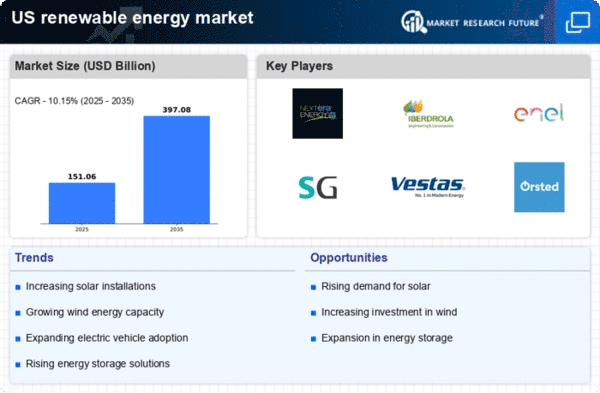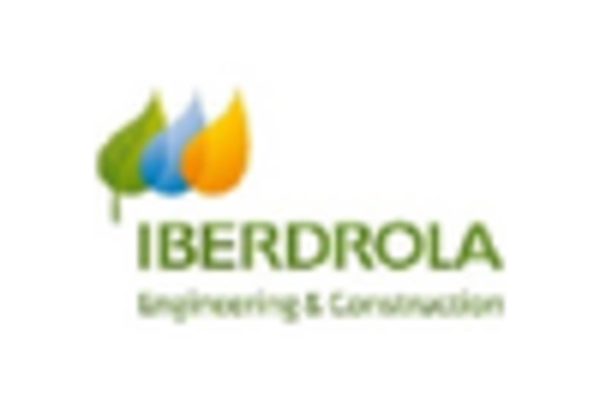Technological Innovations
Technological advancements play a crucial role in the evolution of the renewable energy market in the US. Innovations in solar panel efficiency, wind turbine design, and energy storage systems have led to reduced costs and increased performance. For example, the average cost of solar photovoltaic (PV) systems has dropped by approximately 82% since 2010, making solar energy more accessible to consumers and businesses alike. Furthermore, advancements in battery technology, such as lithium-ion batteries, have improved energy storage capabilities, allowing for better integration of renewable sources into the grid. These technological breakthroughs not only enhance the reliability of renewable energy but also attract investments, thereby propelling the growth of the renewable energy market.
Government Incentives and Policies
The renewable energy market in the US is significantly influenced by government incentives and policies aimed at promoting clean energy. Federal and state governments have implemented various tax credits, grants, and subsidies to encourage investment in renewable technologies. For instance, the Investment Tax Credit (ITC) allows for a 26% tax credit for solar energy systems installed before 2023, which is expected to drive substantial growth in the solar sector. Additionally, the Biden administration's commitment to achieving a 100% clean energy economy by 2035 further underscores the importance of supportive policies. These initiatives not only stimulate market growth but also enhance the competitiveness of renewable energy sources against fossil fuels, thereby shaping the future landscape of the renewable energy market.
Corporate Sustainability Initiatives
Corporate sustainability initiatives are increasingly shaping the renewable energy market in the US. Many companies are setting ambitious targets to reduce their carbon footprints and transition to renewable energy sources. This trend is evident as major corporations, including tech giants and manufacturing firms, commit to sourcing 100% of their energy from renewable sources. Such commitments not only drive demand for renewable energy but also encourage investment in new projects and infrastructure. The corporate sector's focus on sustainability is further supported by consumer preferences for environmentally responsible products and services. As a result, the renewable energy market is likely to benefit from this alignment of corporate strategies with sustainability goals, fostering growth and innovation.
Rising Consumer Demand for Clean Energy
There is a growing consumer demand for clean energy solutions within the renewable energy market in the US. As awareness of climate change and environmental issues increases, more individuals and businesses are seeking sustainable energy options. Surveys indicate that over 70% of Americans support the transition to renewable energy sources, reflecting a shift in consumer preferences. This demand is further fueled by corporate sustainability goals, with many companies committing to 100% renewable energy usage. The increasing availability of green energy options, such as community solar programs and renewable energy certificates, empowers consumers to make environmentally conscious choices. Consequently, this rising demand is likely to drive further investment and innovation within the renewable energy market.
Declining Costs of Renewable Technologies
The renewable energy market in the US is experiencing a notable decline in the costs associated with renewable technologies. The levelized cost of electricity (LCOE) for solar and wind energy has decreased significantly, making these sources more competitive with traditional fossil fuels. For instance, the LCOE for onshore wind has fallen by approximately 49% since 2009, while solar energy costs have seen similar reductions. This trend is attributed to economies of scale, improved manufacturing processes, and increased competition among suppliers. As costs continue to decline, the adoption of renewable energy technologies is expected to accelerate, further transforming the renewable energy market and contributing to a more sustainable energy future.
















